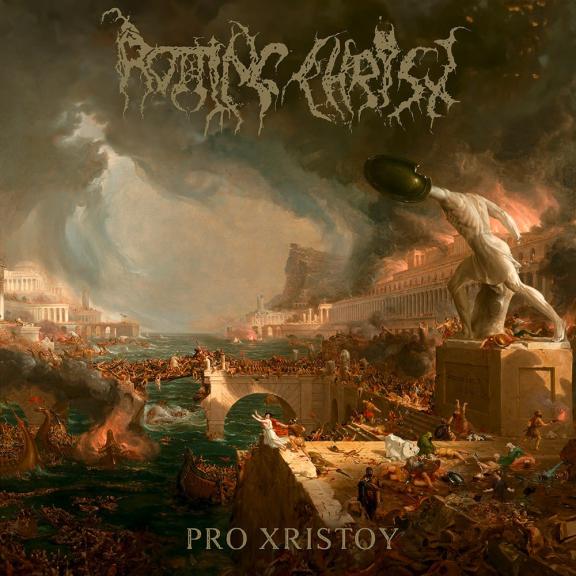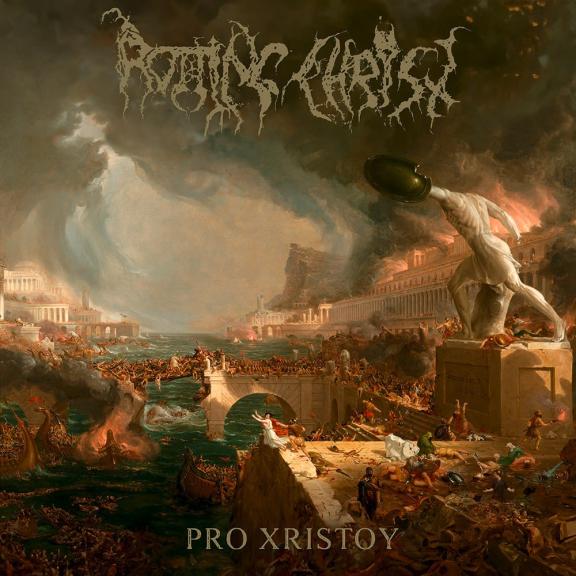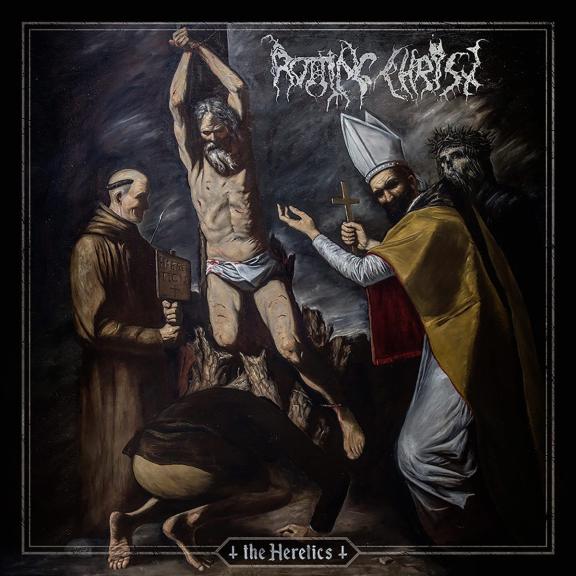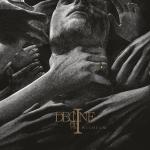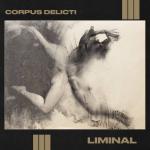The break between Pro Xristoy and The Heretics (which dates back to 2018) was longer than usual for Rotting Christ, who nevertheless offered us something to wait with the rarities collection and B-Sides The Apocryphal Spell in 2023. Should this absence be interpreted as an in-depth rethink of the Greek band's sound, or even a tempting look back at their past?
Well, not at all. Blame it on a pandemic, but also on the hyperactivity of singer Sakis Tolis, involved in various side-projects including a solo in his own name. There's no need to drag out the suspense: this new Rotting Christ album has all the elements typical of the band, and is in the same vein as their output of the last ten or fifteen years. A melodic approach, a singer who often acts as narrator, sounds of battles for the epic dimension, monks' choirs for the gothic decorum, martial rhythms: it's true that the band comes from extreme metal, but with its accessibility and diversity, it remains perhaps one of the best gateways to the genre.
A tendency soon emerges: Tolis, as a threatening storyteller, regularly steps aside (leaving Andrew Liles and Kim Diaz Holm to say a few words on The Apostate, Pretty World, Pretty Dies and Ygdrassil) and entrusts the guitars and backing vocals with the responsibility of leading the journey, carrying the tracks, all constructed as unifying anthems, with their conquering flights and rallying cries. Above all, Rotting Christ seem to be restraining themselves: they who have, over the course of their eras, been much angrier seem to be calmer here, opting more for the role of the wise old man, priest or philosopher, than that of the warrior. Rotting Christ take some heights, some distance abd, by keeping us in a hypnotic mid-tempo, give the whole thing a liturgical feel that serves the purpose and, over time, fascinates.
Pro Xristoy churns out a succession of heavy-paced tracks, with no real ‘hits’ to stand out. The result is a feeling of contemplation that we weren't expecting, despite an introduction with a title track full of sententious heaviness and the intensity of some of the angrier passages (La Lettera Del Diavolo and its more incisive, more black metal fulgurances, or The Farewell, with its heavier, more pronounced darkness). Rotting Christ is more mystical than ever and, by paying tribute to the last pagan kings who resisted Christianity, plunges us into an ancient but cosmopolitan world (we move from Greece to Scandinavia, via Italy), always materialised by more or less discreet borrowings from traditional music, folk touches that flesh out the sound to give it its full scope and evoke pre-Christian rituals. Pix Lax Dax is perhaps the most representative and striking track on this new album: instruments and narration from another time, theatrical backing vocals, an immediately infectious melody imposed by the guitar, chiaroscuro nuances and cinematic grandiloquence... Rotting Christ may be slowing down the pace, but they're still giving us an earful.
A more meditative extension of Ritual and The Heretics, Pro Xristoy seems to have inherited elements from Sakis Tolis' side-projects. It's not a simple copy-and-paste, because, strange as it may seem, Rotting Christ is sunnier than usual, less gothic and more unifying than ever. This is bound to frustrate those who were hoping for a more biting sound, but while Ygdrassil's incantations and visceral rage or Saoirse's bellicose exhortations conclude the epic, it has to be said that Rotting Christ has absolutely mastered its subject and manages to captivate us with its more contemplative but no less gripping journey through time.

